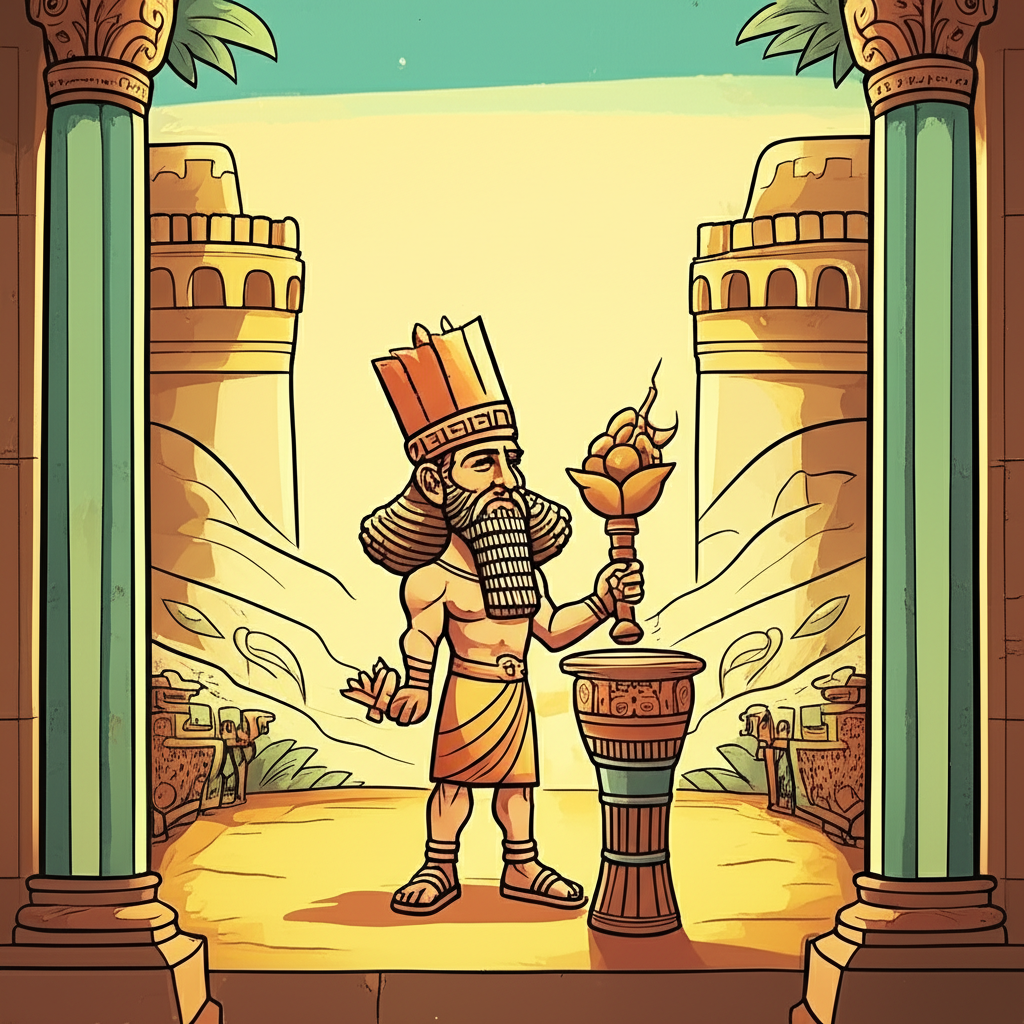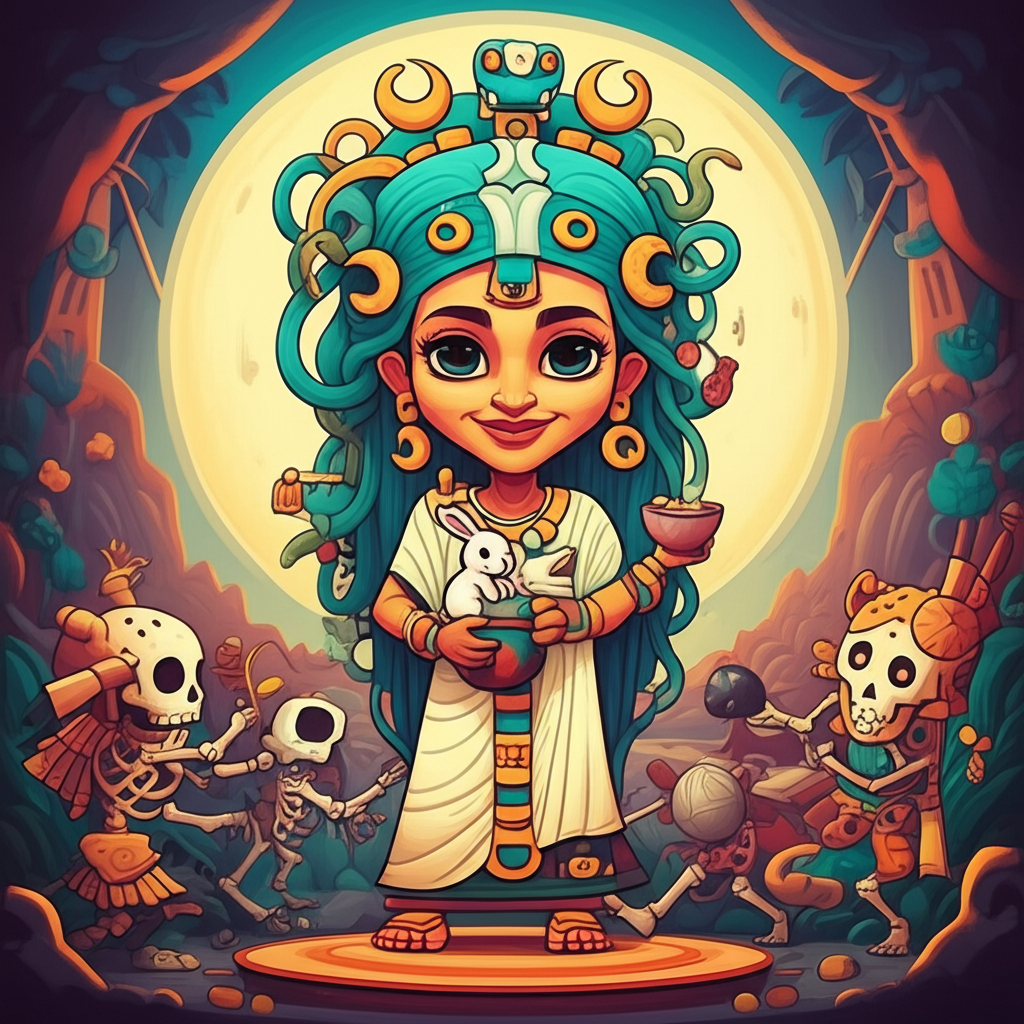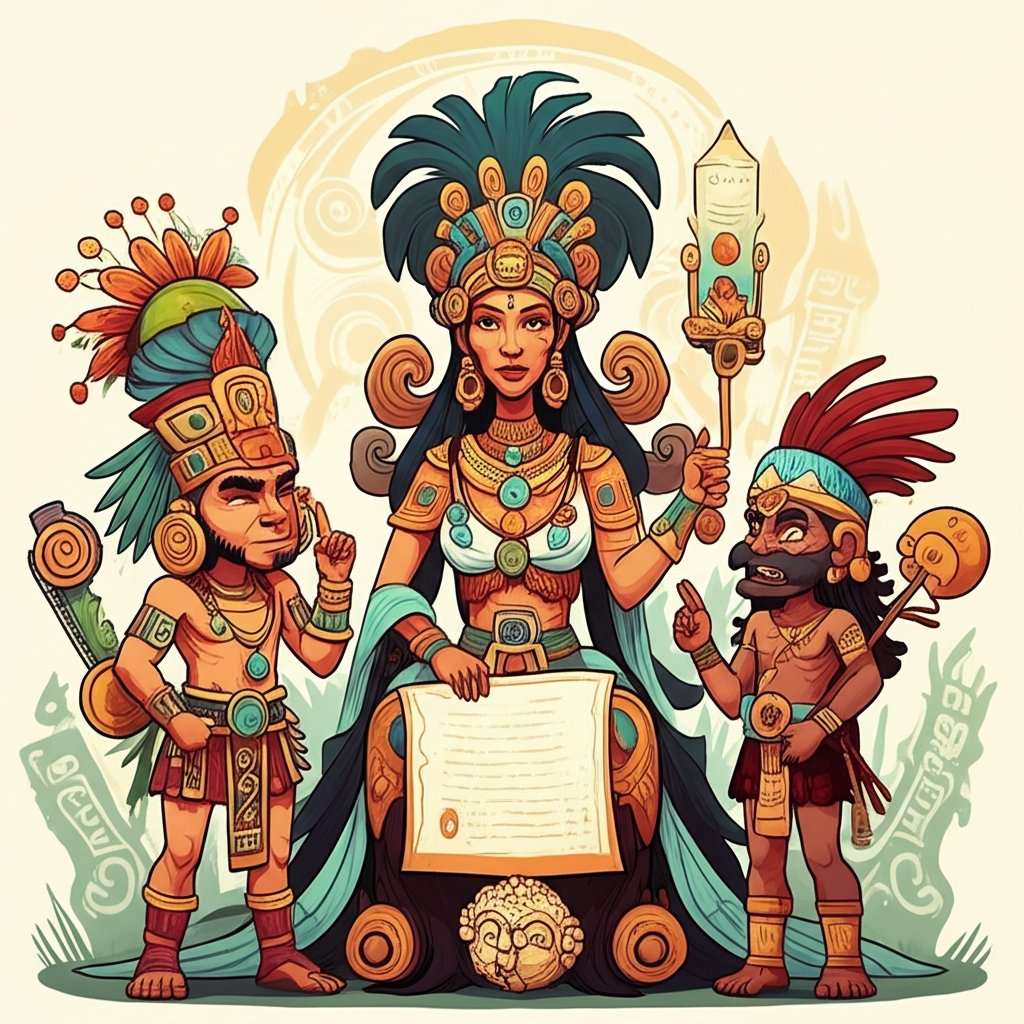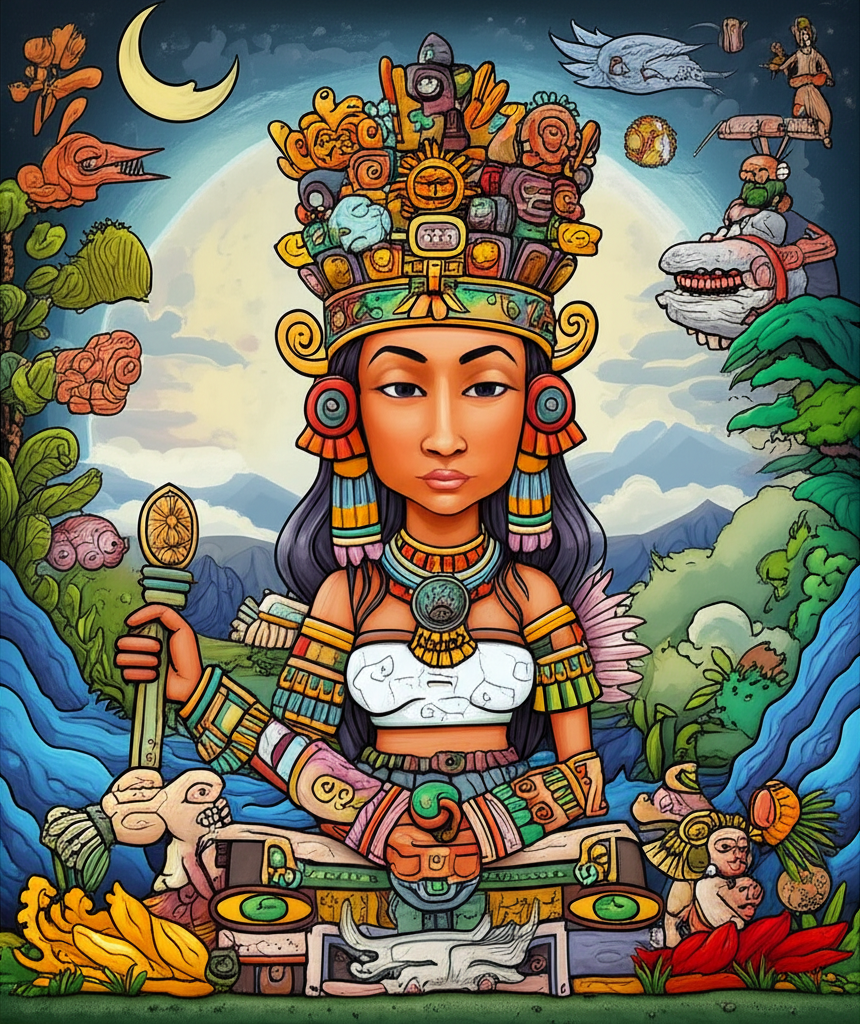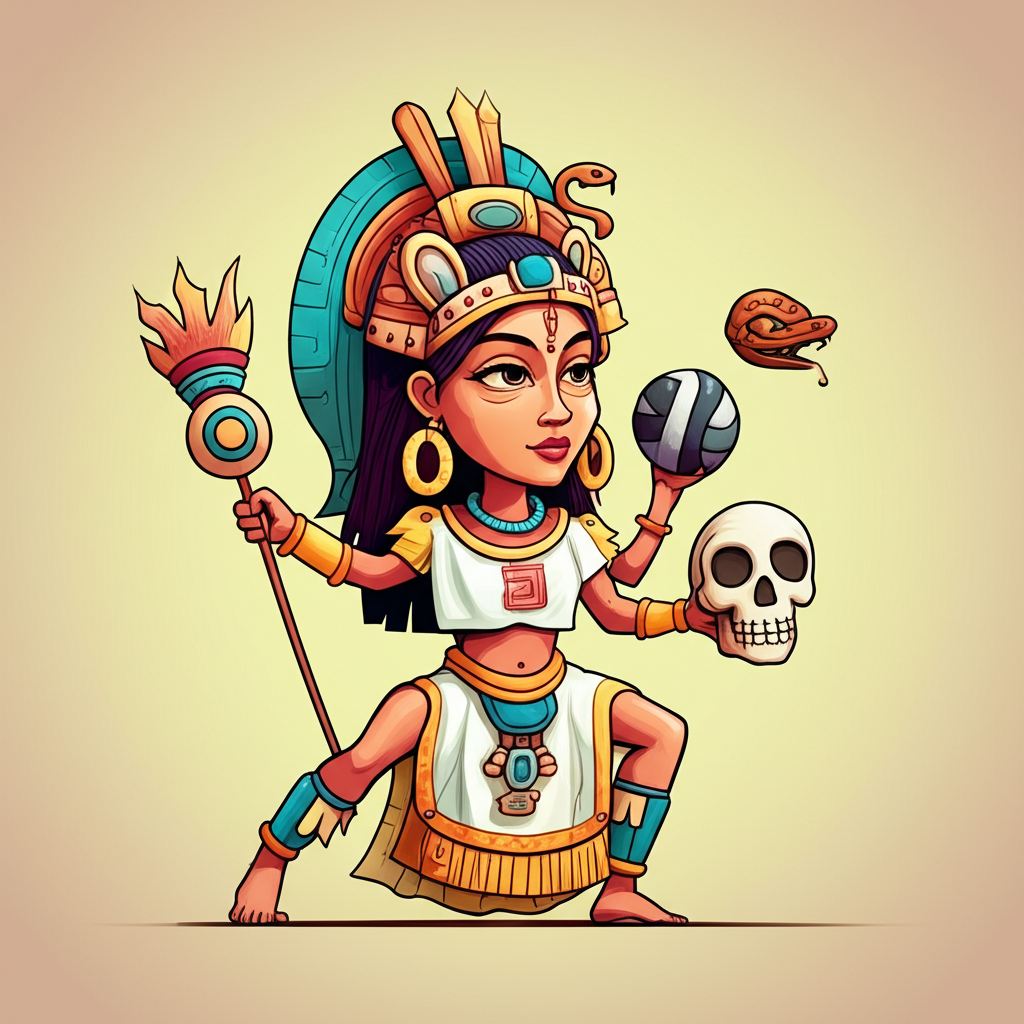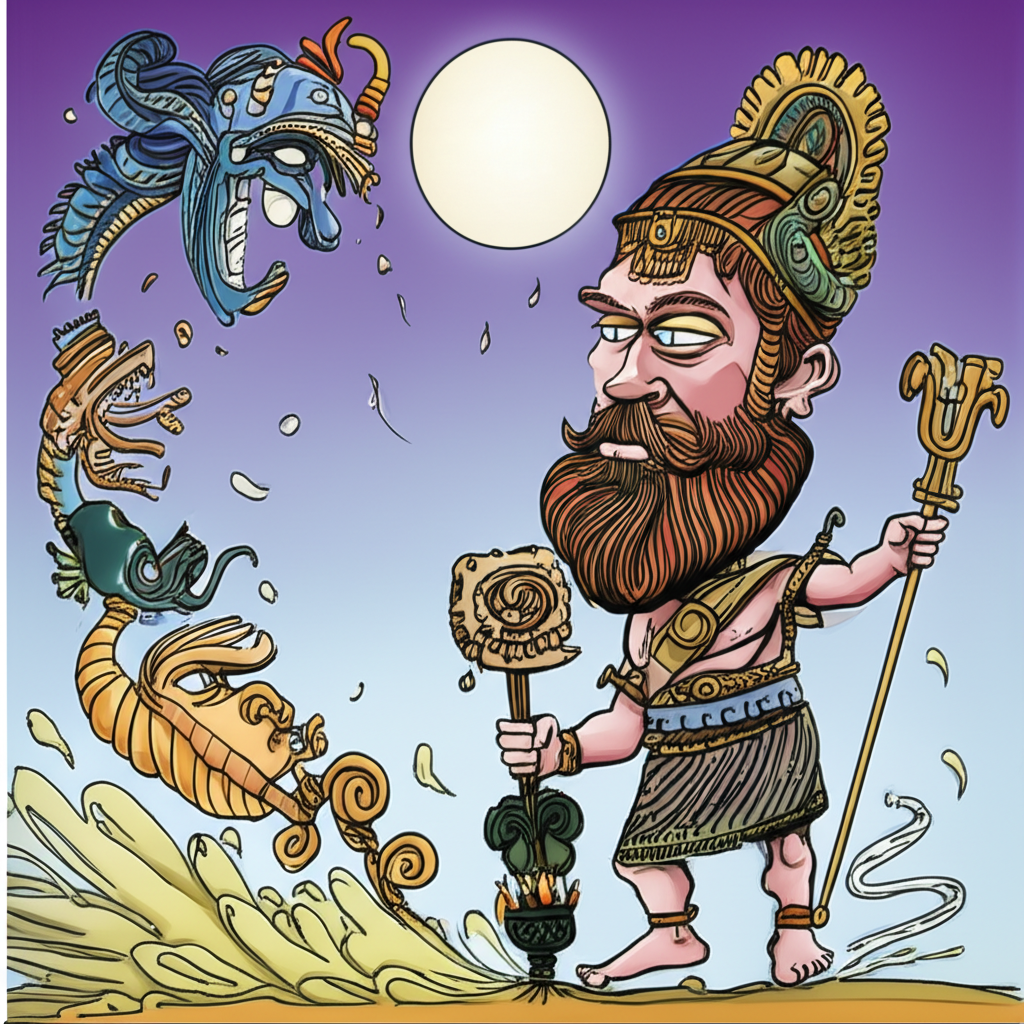
Enki and the War of Enuma Elish: A Mesopotamian Myth of Creation and Order
Introduction:
The epic of Enuma Elish, meaning "When on High," is a foundational creation myth originating from ancient Mesopotamia, specifically from the Babylonian civilization. It’s a dramatic and complex narrative that tells the story of the cosmos’s origin, the rise of the gods, and the creation of humankind. This is a traditional story passed down through generations, a window into the worldview of a people who lived thousands of years ago, and not a statement of fact or a call to worship.
Origins and Cultural Background:
The Enuma Elish was likely composed during the Old Babylonian period (roughly 18th century BCE), with earlier versions potentially existing before that. It was a time when Mesopotamian city-states were vying for power, and the myth served not only as a cosmological explanation but also as a political statement, elevating Babylon’s patron deity, Marduk, to supreme status.
The people of Mesopotamia lived in a world intimately connected to the cycles of nature. Their lives depended on the unpredictable Tigris and Euphrates rivers, the fertility of the land, and the changing seasons. They believed the gods controlled these forces, and their myths were attempts to understand and appease these powerful beings. Their worldview was polytheistic, populated by a pantheon of gods and goddesses, each with specific roles and responsibilities. They perceived the universe as a flat disc covered by a dome, with the underworld beneath and the heavens above. The Enuma Elish reflects this understanding, depicting a world born from primordial chaos and shaped by divine conflict.
Character Description: Enki
Enki (also known as Ea in Akkadian) is a prominent figure in Mesopotamian mythology. He is the god of wisdom, intelligence, mischief, water, creation, and magic. He is often depicted as a bearded man wearing a horned crown, a symbol of divinity and power, and flowing water. Enki’s symbolic attributes are profound. Water represents the source of life, and as the god of water, Enki is the life-giver. His wisdom and intelligence are not just about knowledge; they represent cunning, resourcefulness, and the ability to find solutions to difficult problems. He is considered a protector of humanity. In the Enuma Elish, he is a key player, using his intellect and magical abilities to navigate the turbulent events that unfold. He is not to be seen as a divine entity or a source of worship, but a character in a narrative intended to explain the unexplainable.
Main Story / Narrative Retelling:
In the beginning, there was only Apsu, the primordial god of fresh water, and Tiamat, the goddess of salt water. They mingled their waters and gave birth to the younger gods. However, these younger gods were noisy and disruptive, disturbing Apsu’s sleep. Annoyed, Apsu plotted to destroy them all.
Tiamat, however, was horrified by Apsu’s plan and warned Enki, her grandson. Enki, using his cunning and magical abilities, cast a spell on Apsu, plunging him into a deep sleep. He then killed Apsu, building his dwelling place on top of his body. This act enraged Tiamat, who vowed revenge for the death of her consort.
Tiamat, in her fury, created an army of monstrous creatures to wage war against the younger gods. She elevated Kingu, her new consort, to be the commander of her forces and bestowed upon him the Tablet of Destinies, which held the power to control the fate of the universe.
The younger gods were terrified and despaired, until Marduk, the son of Enki, stepped forward. He promised to defeat Tiamat, but only if they would declare him their king and grant him absolute authority. The gods, desperate for a savior, agreed.
Marduk armed himself with powerful weapons: a bow and arrows, a mace, lightning, and a net to ensnare Tiamat. He rode into battle on a storm chariot, accompanied by fierce winds. He challenged Tiamat to single combat.
The battle was fierce and chaotic. Marduk cast his net over Tiamat, trapping her. He then unleashed the winds he had captured, filling her belly until she could no longer move. Finally, he fired an arrow into her, splitting her in two.
From Tiamat’s body, Marduk created the heavens and the earth. He used one half of her body to form the sky, and the other half to form the land. He established the constellations, regulated the seasons, and created the rivers Tigris and Euphrates from her eyes. He took the Tablet of Destinies from Kingu and secured his rule over the cosmos.
Finally, on the advice of Enki, Marduk decided to create humankind. He used Kingu’s blood, mixed with clay, to fashion the first humans, who were tasked with serving the gods and maintaining order in the world.
Symbolism and Meaning:
The Enuma Elish is rich in symbolism. The conflict between Apsu and Tiamat represents the struggle between order and chaos. Apsu’s desire to destroy the younger gods symbolizes the fear of change and the attempt to maintain the status quo. Tiamat’s monstrous army represents the untamed forces of nature and the dangers of unchecked power. Marduk’s victory symbolizes the triumph of order over chaos, the establishment of civilization, and the importance of leadership. Enki’s role as the wise counselor highlights the value of intelligence and strategy in overcoming adversity. The creation of humankind from Kingu’s blood symbolizes the inherent connection between humanity and the divine, as well as the burden of responsibility to maintain order.
For the ancient Babylonians, the Enuma Elish served as a theological justification for their social and political structures. It explained the origin of the world, the role of the gods, and the place of humanity in the cosmos. It also served as a reminder of the importance of maintaining order and stability in a world constantly threatened by chaos.
Modern Perspective:
The Enuma Elish continues to be studied and interpreted today by scholars of mythology, ancient history, and comparative religion. It has influenced modern literature, movies, and games. For example, themes of cosmic conflict, the battle between order and chaos, and the creation of humanity can be found in various science fiction and fantasy works. The Enuma Elish also provides valuable insights into the worldview and beliefs of ancient Mesopotamian civilization, helping us to understand their culture and history.
Conclusion:
The Enuma Elish is a fascinating example of a creation myth, a testament to the power of storytelling and the human desire to understand the world around us. It is a valuable source for understanding the culture, beliefs, and worldview of the ancient Mesopotamians. It is crucial to remember that this is a traditional story, a product of human imagination, and not a statement of divine truth. As Muslims, we recognize that Allah alone is the true Creator and Sustainer of the universe, as revealed in the Quran.
This story, like other myths, should be appreciated for its cultural and historical significance, its artistic merit, and its ability to spark our imagination and curiosity about the past. It is a reminder of the rich tapestry of human history and the enduring power of storytelling.
